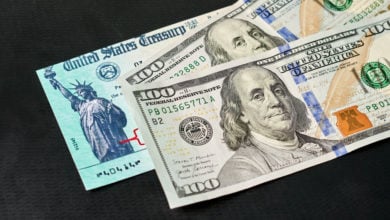The history of oil is one of bloody competition and widespread imperialist violence against people all over the world. The international oil industry is worth $3.75 trillion. Only the banking industry is bigger than oil.
The U.S. wars on Iraq and Afghanistan are driven by the mountains of profits to be made from the production and sale of oil, gasoline and other oil products. The Middle East and Central Asia are home to the great majority of the world’s known oil reserves.

The oil industry that hopes to benefit greatly from the occupation of Iraq and Afghanistan is monopolized by a few enormous corporations. These monopolies, with the help of equally gigantic banking monopolies, channel vast amounts of wealth into the hands of the big corporate owners and a few CEOs in the United States and Europe.
Oil juggernauts like ExxonMobil, British Petroleum and ChevronTexaco are some of the wealthiest corporations in the world. ExxonMobil will make an estimated $30 billion in profits in 2005 alone. (Worcester, Mass. Telegram & Gazette, Aug. 28)
Oil monopolies swimming in wealth
You name it: banking, oil, steel, computers, wheat, chickens, water, lumber, cars. In every major industry in the United States, a few corporations rule the market, raking in super-profits and eliminating competition.
Monopolies are the natural outcome of the earlier free market capitalist system. Over the last 200 years, the capitalist big business clique has been the most powerful class in society. They have accumulated massive profits and consolidated power into fewer and fewer hands. Now the big banks and monopolies in each industry control the great majority of wealth-producing private property in society.
In the U.S. oil industry, ten companies control 85 percent of the market. Five companies in the United States and Britain—ExxonMobil, Valero, ConocoPhillips, Shell and British Petroleum—have made $228 billion in profits since 2001. (The Christian Science Monitor, Sept. 27, 2005)
Always in the forefront of the minds of the monopolists is how to increase their profits in order to maintain their position in society. In the past three years, the price of oil has tripled, reaching as high as $70 barrel in August.
Gas prices at the pump have doubled over the last year to around $3 a gallon. According to The Christian Science Monitor, the people of the United States will pay $200 billion dollars for gas in 2005, twice as much as 2004. Working-class families will pay 10 percent of their income for gasoline alone.
In the past six years, the richest oil companies have dropped even the façade of competition and are again forming behemoth corporations in order to magnify their profits.
In 1999, Mobil and Exxon merged. The huge ExxonMobil Corporation makes $330 billion a year in revenue. To put this kind of money in perspective, Halliburton makes about $20 billion in revenue, while Microsoft generates $40 billion every year. ExxonMobil revenues are larger than the 2004 gross domestic product of Egypt.
In 2000, British Petroleum bought ARCO. British Petroleum now generates $310 billion a year in revenue.
In 2002, Phillips merged with Conoco. ConocoPhillips does $135 billion a year in revenue. In August 2005 ChevronTexaco—formed in 2000 by the merger of Chevron and Texaco—bought Unocal. ChevronTexaco now does $160 billion a year in business.
In 1994, Exxon made $140,000 of profit for every worker it employed, according to the April 20, 2005, Houston Chronicle. In 2004, ExxonMobil made $444,000 per employee—an increase of 317 percent. Over the same period, Conoco increased its profits per employee by 327 percent.
All of the major oil corporations in the United States used to be part of one big monopoly: the Rockefeller-owned Standard Oil. In 1890, Standard Oil owned 90 percent of oil production and sales in the U.S.
In a landmark 1911 trust-busting case, the U.S. Supreme Court broke up Standard Oil into 30 separate oil companies. Standard Oil of New Jersey, with almost half of the total net value of all Standard Oil, became Exxon. Standard Oil of New York, with 9 percent of the company’s net value, became Mobil. Although the court broke up the Standard Oil monopoly, the monopoly tendency reasserted itself and the 30 separate oil companies eventually merged into seven major companies.
Oil monopolies cause suffering
The oil companies’ wealth gives them great power in society. Their quest for profits leads to all kinds of destruction and social misery.
Every year, the oil industry casts aside thousands of workers. In 2004, the top 15 energy companies in the United States laid off 21,000 workers. Since 1981, the oil industry has laid off 1.1 million workers. (Houston Chronicle, April 20, 2005)
With every merger or improvement in technology come layoffs. The 1999 Exxon-Mobil merger led to 14,000 layoffs. When British Petroleum bought ARCO in 2000, 5,000 people were let go.
Big oil companies have also devastated the environment. Oil pumps, refineries, gas stations and heavy emissions from cars are polluting the planet with toxins. Working-class neighborhoods, where most of the world’s refineries are located, are the hardest hit by the callousness of the oil giants.
Nationally oppressed communities are especially hard hit. In Los Angeles, over 71 percent of African Americans and 50 percent of Latinos live in areas with the most polluted air, compared to 34 percent of whites. (The Christian Science Monitor, Sept. 29, 2005)
In 1989, the Exxon Valdez oil spill ruined 32 miles of Alaskan Coast. To this day, Exxon has still not paid the court-ordered $4.5 billion for clean up and to put people’s lives back together.
Oil money is being poured into the big business parties so that environmental protections that people have fought for will continue to be rolled back. In the wake of the criminal response to the flooding of New Orleans, Bush allies in Congress put forward a number of bills to greatly relax environmental regulations on refineries and drilling platforms. They are also planning to open the entire Arctic Wilderness Refuge to exploration and drilling.
High oil and gasoline prices affect people in poorer areas of the world even more than they hurt people here in the United States. Unlike the price gouging of imperialist oil companies, Venezuela, as the fifth largest producer of oil in the world, is offering cheap oil to poorer countries. The revolutionary government of Hugo Chávez has signed trade agreements with Caribbean countries under very favorable terms. Venezuela has also offered cheaper oil to working-class communities in the United States.
In addition to the U.S. occupations of Iraq and Afghanistan, U.S. imperialism has sent military advisors, troops, weaponry and billions of dollars in military and other aid all over the world to protect the interests of the oil monopolies. Iran and Venezuela are on the Bush Administration’s hit list because they are major oil-producing countries that are pursuing an independent course from U.S. hegemony in the world.
Fixing oil prices
The result of the tight control of the oil industry by gigantic monopolies is that oil prices are highly regulated.
In one of the extremely rare admissions of industry collusion, oil executive Walter Levy said in an interview with Sam Donaldson in 1982, “The oil price has never been a free market price as long as you or I can remember.” These words continue to be true today.
If oil prices were left up to the market and real competition, like the price of TVs, they would level off over the long term. Technological advances and increased productivity would tend to bring costs down.
So, why is the price of oil and gasoline so high right now? The answer is profit—and lots of it. Demand for oil is high and the oil companies are cashing in.
But any sharp rise in prices or rapid growth in profits under capitalism cannot go on forever. Even the price-fixing of the banks and oil companies cannot stop an inevitable crash in oil prices.
That could lead to an economic collapse, causing even more suffering for workers than there is now. The capitalist state, the banks and the oil monopolies will have a much harder time explaining away the bankruptcy of their system.
At this point in human history, there is no reason that a tiny minority should own the means of producing the kind of wealth that the oil industry generates while people go hungry, cannot find jobs and go without basic necessities like health care and adequate housing.
Liberation of the oil industry and its wealth from the greedy monopolists and putting it in the hands of the workers and oppressed would be a great aid to the people of the world.
J.D. Rockefeller, capitalist oil magnate (center).
Photo: Hulton Getty Photo Archive





